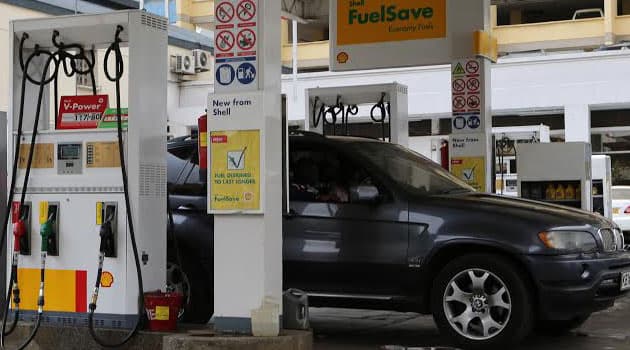We're loading the full news article for you. This includes the article content, images, author information, and related articles.
The government has once again utilized the fuel subsidy to shield Kenyans from a potential rise in the cost of living, maintaining pump prices for petrol, diesel, and kerosene for the next 30 days.

NAIROBI, Kenya - The Energy and Petroleum Regulatory Authority (EPRA) on Friday, November 14, 2025, announced that fuel prices will remain unchanged for the November-December review period, marking the second month in a row of stable prices for consumers. The decision, effective from midnight on Saturday, November 15, 2025, until December 14, 2025, keeps the cost of Super Petrol, Diesel, and Kerosene at current levels across the country.
In Nairobi, a litre of Super Petrol will continue to retail at Sh184.52, Diesel at Sh171.47, and Kerosene at Sh154.78. Similarly, prices in Mombasa will hold at Sh181.21 for petrol, Sh168.19 for diesel, and Sh151.49 for kerosene. Other major towns like Nakuru, Eldoret, and Kisumu will also see no changes in pump prices.
This stability is attributed to the government's application of a fuel stabilization mechanism, which has cushioned consumers from the impact of fluctuating international oil prices. According to EPRA's statement, the move was made despite mixed movements in the landed cost of imported petroleum products.
The average landed cost of imported Super Petrol saw a slight decrease of 0.18% from US$620.24 per cubic metre in September 2025 to US$619.14 in October 2025. However, the landed cost of Diesel increased by 1.81% from US$623.75 to US$635.05 per cubic metre, and Kerosene rose by 0.71% from US$627.72 to US$632.16 per cubic metre over the same period. Without the subsidy, the increase in the landed costs of diesel and kerosene would have translated to higher pump prices.
The government's intervention through the Petroleum Development Levy Fund absorbs these potential cost increases, preventing a direct impact on consumers. In the previous review period (October 15 to November 14), a subsidy of Sh0.07 was applied to every litre of super petrol, Sh0.54 for diesel, and Sh3.48 for kerosene. The specific subsidy amounts for the current cycle were detailed in the announcement as Sh0.48 for petrol, Sh2.33 for diesel, and Sh4.24 for kerosene.
The decision to maintain stable fuel prices offers a reprieve to Kenyan households and the economy at large, which is heavily reliant on diesel for transport, manufacturing, and agriculture. Fuel costs are a significant driver of inflation in Kenya, and any upward adjustment typically leads to a rise in the cost of goods and services. Kenya's annual inflation rate stood at 4.6% in October 2025, unchanged from September, remaining within the Central Bank's target range. The stability in fuel prices is expected to contribute to keeping inflation in check.
However, the long-term sustainability of the fuel subsidy has been a subject of debate. The fund has been depleted in the past, leading to sharp price hikes when the government was unable to continue the cushioning measures. Economists and organizations like the International Monetary Fund (IMF) have previously advised on the need to move away from such subsidies, which can strain public finances.
The current prices are inclusive of the 16% Value Added Tax (VAT) as stipulated in the Finance Act 2023, and other revised tax laws and excise duties adjusted for inflation. For now, the government's decision provides critical stability for household budgets and business operational costs as the festive season approaches. EPRA has reiterated its mandate to ensure fair pricing and protect the interests of both consumers and investors in the energy sector.
Keep the conversation in one place—threads here stay linked to the story and in the forums.
Sign in to start a discussion
Start a conversation about this story and keep it linked here.
Other hot threads
E-sports and Gaming Community in Kenya
Active 9 months ago
The Role of Technology in Modern Agriculture (AgriTech)
Active 9 months ago
Popular Recreational Activities Across Counties
Active 9 months ago
Investing in Youth Sports Development Programs
Active 9 months ago